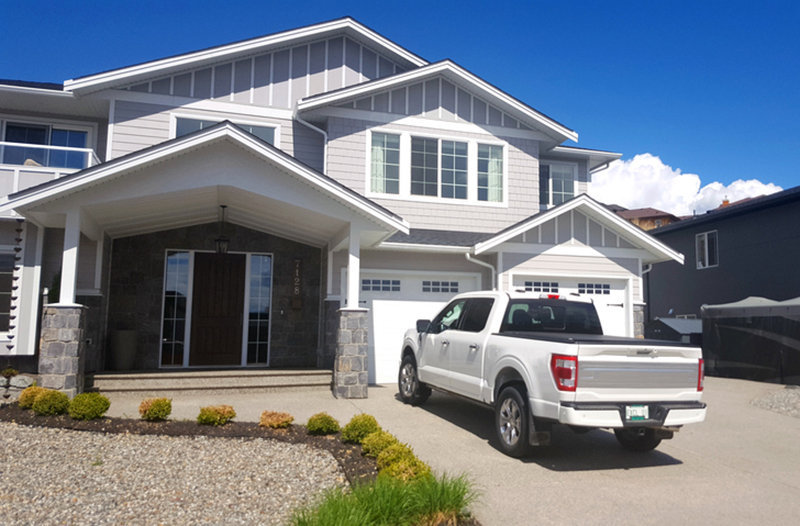By Christopher H. Marine and Owen D. Beylus
What the Passage of House Bill 1203 Means for You
If you are a pickup truck owner residing in a community governed by a homeowners’ association (HOA), there is encouraging news on the horizon. Effective July 1, 2024, Florida House Bill 1203 introduces significant changes to HOA parking regulations. This new legislation may allow you to park your pickup truck in your driveway without violating HOA rules, marking a substantial shift in the rights of homeowners within these communities.
In this article, we explore how this new Florida legislation impacts you and your community.
A Shift in Parking Rights
For years, many HOAs have restricted parking of pickup trucks in driveways, often based on outdated perceptions that these vehicles are solely commercial or not in line with neighborhood aesthetics. Today, pickup trucks are frequently high-end, versatile vehicles serving both personal and professional purposes. Recognizing this evolution, Florida’s legislature enacted House Bill 1203 to align HOA regulations with modern vehicle use and homeowner preferences.
Key Provisions of House Bill 1203
The law introduces important changes that enhance parking freedoms within Florida HOA communities:
- Personal Vehicles Permitted in Driveways
- Homeowners and their guests are allowed to park personal vehicles—including pickup trucks—in the homeowner’s driveway or any designated parking area.
- Flexibility for Work Vehicles
- Work vehicles that are not classified as commercial motor vehicles under Florida law can be parked without restriction.
- Support for First Responders
- First responders may park their assigned vehicles on public roads or rights-of-way under the HOA’s control, even if previous HOA rules prohibited such parking.
These provisions represent a significant advancement for homeowners seeking more autonomy over parking on their property.
Implications for Future HOA Developments
For prospective homeowners moving into new HOA communities after July 1, 2024, House Bill 1203 offers the potential for more lenient parking rules, allowing pickup trucks to be parked in driveways without violating HOA restrictions. This legislation enhances property rights by giving homeowners more control over their vehicle choices and reduces the likelihood of disputes with HOAs. As a prospective buyer, it is important to review HOA documents and inquire how the new law will be implemented in the community you’re considering.
Implications for Existing HOAs
The passage of House Bill 1203 presents a positive opportunity for existing HOAs to modernize their rules and regulations. While HOA covenants are legally binding agreements that often contain parking restrictions, this new legislation serves as an incentive for HOAs to proactively update their covenants to better align with the evolving needs of homeowners and avoid unnecessary disputes over pickup truck parking.
Understanding the Legal Landscape
Florida law generally presumes that new statutes apply prospectively, not retroactively, unless explicitly stated otherwise (State v. Lavazzoli). Since House Bill 1203 does not specify retroactive application, existing HOA covenants with parking restrictions likely remain enforceable. However, House Bill 1203 can still influence HOAs to voluntarily amend their restrictions.
Covenant Modification Clauses
One potential avenue for homeowners seeking change is the presence of a modification clause in their HOA’s governing documents. These clauses allow for amendments in response to new laws, such as House Bill 1203. If an HOA covenant includes a modification clause, homeowners may be able to advocate for their HOA to adjust parking rules to align with the new legislation, even though the statute does not automatically apply retroactively.
Potential for Updated Parking Rules
The potential for inconsistency between new and existing HOA developments may encourage existing communities to modernize their rules. As newer developments adopt the more flexible parking standards introduced by House Bill 1203, homeowners in existing HOA communities are likely to push for similar changes. Pickup trucks, once seen as outliers, have become normalized in residential neighborhoods, and this shift can create tension between homeowners in newer communities with greater parking freedoms and those restricted by outdated rules. To maintain property values, foster community goodwill, and avoid unnecessary disputes, many HOAs may feel motivated to voluntarily amend their covenants, reflecting the growing demand for more practical and fair parking regulations.
Encouraging Positive Change
There are practical steps homeowners can take to encourage more parking freedom within their HOA communities:
- Review Your HOA Covenants
- Examine your HOA’s governing documents to see if they include a modification clause allowing for amendments in response to new laws. Such a clause could facilitate updating parking restrictions.
- Engage with Your HOA Board
- Approach your HOA board with the benefits of adopting the new law’s provisions. A cooperative discussion can demonstrate how updating these rules reflects modern vehicle use and homeowner preferences, motivating the board to take action.
- Collaborate with Fellow Homeowners
- Build consensus among neighbors to advocate for amendments to the HOA’s rules. A united community effort can often lead to faster and more effective changes.
Conclusion
Florida House Bill 1203 marks a meaningful step toward increased parking flexibility for homeowners in HOA communities, especially those with pickup trucks. While the law may not automatically apply to existing HOAs, it provides homeowners with an opportunity to work collaboratively with their associations to modernize outdated covenants. As communities evolve to embrace modern vehicle use, HOAs and homeowners alike can benefit from more inclusive and practical parking regulations. This shift represents not just pressure, but an opportunity for HOAs to foster a more harmonious and forward-thinking community environment that reflects the needs of today’s homeowners.





